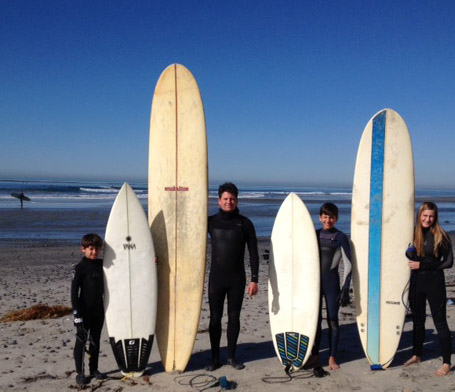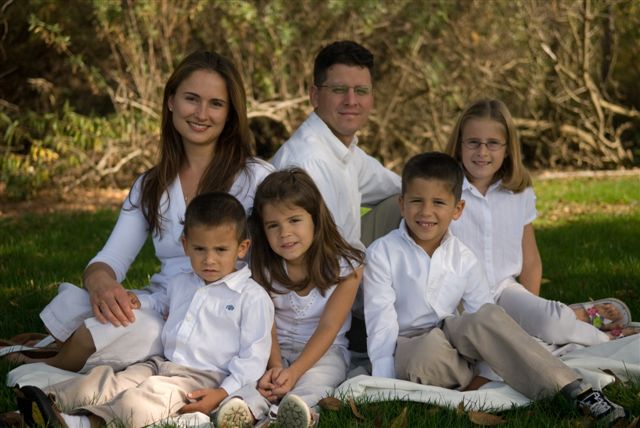I can remember my first experience with a journalist. I was interviewed after an elementary school band performance that traditionally gave me trumpet solo time on center stage. I suppose this is as close as I have every come to stardom, but despite the lowly context, the media was there to accommodate. I was asked a question by a journalist, I answered, and my mother naturally pointed out the next day’s result in newspaper print. All I recall caring about was the fact that I was misquoted.
Fast-forwarding a few years: I found myself on a university campus in Michigan as a philosophy graduate student and teaching assistant. It was before the snow blew and the winds reached 30 miles an hour, a nice day for a traveling sex-suppressed fanatic to preach to college students away from the safety of their homes and immediate family. I had some time before my class, and so I joined the half-nervous, half-amused crowd. I found myself seated by a writer for the school’s student paper after I had successfully challenged some of the questions blasting this old Prophet (amazing psychology here: when someone within ‘the group’ answers back). And so I was interviewed. No doubt recollecting, however unconsciously, my past experience with journalists, I asked this writer to repeat what she just wrote down as she listened to my answer. “No, that is not what I said,” I replied. It is perhaps likely that this student journalist also bears in memory this contact with an old Prophet and a fundamentalist philosophy graduate student.
After the interview, I was off to teach my critical thinking class, in part to go through a sample text from Galileo I believe. After class, a student came up to me and made some derogatory comments about the old Prophet’s views on homosexuality. I will never forget the look of horror on this young man’s face after I gracefully explained that I agreed with the old Prophet. I then spent 15 minutes at the board with this young man schematically going over redemptive history. Soon after, my Christian professor found out about an article I just published in Credenda Agenda, and I was banned from teaching the history of philosophy. But that is another story . . .
A few years later, now back at the Kirk and whirring along with Pooh’s Think, Part 1, I was asked for an interview by a local journalist. ‘Hmmm,’ I thought, ‘a local journalist here in the hills of north Idaho. Not so sure about this.’ I explained that I was only willing to interview in writing. At that, the journalist claimed he did not see anything all that distinctive about the situation with Wilson anyway, and that was that. I still wonder what that journalist was really up to. Roy Atwood, President of New St. Andrews, is a good politician and was head of the communications department at University of Idaho before making the switch. The journalism in north Idaho has been pretty well buttoned up for a while now.
So when an editor for Christianity Today was interested in an interview a couple months ago, I just re-instantiated the drill: In writing pal. After some days, however, the interviewer sent me some thoughtful questions for me to answer in writing. I doubt Christianity Today will publish my answers and I have heard no answer back. So here they are:
Tell me about your childhood experience with Christian faith? Would you characterize it as primarily positive or negative?
I would characterize my childhood experience with Christian faith as primarily positive. The conservative Christianity of my family brought me in contact with a number of small to medium sized independent and Baptist churches. This contact comprised most of my experience with unified interaction between parents, peers, and a broader community. Our tradition was standard evangelicalism and the simple faith of a child was accepted on face value with an expectation that greater commitment and understanding would lead to baptism in the future. My parents considered me born again at a very young age, but I was not baptized until I was in Junior High. My father was no Big Brother, and so there is little child psychology to toy with as far as I can tell. The story gets complicated after about eighth grade. Moral hypocrisy in the church was the primary reason our family ceased church attendance, and it was not until I experienced a crisis, followed by a conversion experience in high school, that religion became a topic in the home again.
Who was the most formative influence (for better or worse) in your spiritual development?
This is a difficult answer to get quite right, but I will offer at least some primary personal and situational influences that come to mind: The crisis I mention above began in eleventh grade when my girlfriend treated me in ways that I found incomprehensible and hurtful. I was also becoming exasperated with the using, manipulation, lying, bragging, and womanizing from the cooler bunch of guys that I found myself associated with. I recall in particular noting that there was no sense of justice, and no care to defend the honor of another friend. My good friend from tenth grade had moved away, and I found myself socially thirsty and perplexed. I was particularly unsettled when one fellow offered his surprise that he could offend me by lying to me: “I lie to you and you lie to me, that is just the way it is.” In 12th grade, now alone in my own apartment for zoning purposes, I was poised for a good deal of fun. But, more relationally inclined than the average male of my age, I was already a bit tired – prematurely perhaps – of heading in the direction of dissipation. One night, at a high-school football game, I came back in contact with my old youth pastor from the local PCUSA church (this church had a program that was popular among the High School students). I had always respected him for the sincerity and gentleness that he gracefully conjoined with a more sophisticated intellectual demeanor. On the spot I felt dirty – to use what still seems the best word. He mentioned the new youth pastor at the PCUSA (he was now an assistant pastor at a PCA church) and on the spot I committed to going back and checking it out.
The next few months were a whirlwind and one evening, while lying awake in bed, I had a somewhat mystical experience – as if I could peer up through the heavens and into the infinity that lay beyond and have a sense of what God – who had been lovingly yet regretfully watching me all my life – was now thinking, which was what I was thinking: you are such a fool. My girlfriend of 11th grade became the idol, the false god that broke my heart, and God was now the one that told the truth after everyone else had lied. I wrote a song soon after with the chorus “I’ve seen love shine, through the darkness of my life; he wouldn’t let me go, he set me free, he died for me.” Almost overnight I had lost my fits of anger, profanity, bitterness, and was keenly interested in exploring the truth of the bible, prayer, time with parents, Christian friendship, and evangelizing. I became a bit ascetic and had what evangelicals would certainly consider worship experiences in the evenings. Oddly, I also became academically inclined, went from a C student to an A student, and for some reason found the nearest bookstore and bought a philosophy book on infinity and the mind. I was now fascinated by literature, physics, the bible, and a naive exploration of what I now know is the classical problem of evil. That original syncretism has stayed with me until today. Ironically enough, latent in this year of conversion was perhaps my eventual apostasy.
Tell me about when you first started to think of leaving the faith, or the moment when you realized that you were slipping away?
There is no clean answer to this. I was deeply situated in Douglas Wilson’s Christ Church, or as he used to call it, the Kirk. I was a ministerial student and contributor to Credenda Agenda, and I was well connected with the Kirk and larger Moscow community, including New St. Andrews faculty and elders at Christ Church. The first notions of ‘falling away’ – I was limited to conceptualizing it as just this – coincided with a growing desire to leave the Kirk community altogether. However, I simply withdrew from these thoughts in horror and suppressed them. Any sign of doubt I found in me was my enemy. Although I never focused too much on the doctrine of hell, it is clear in hindsight that I was psychologically guided by implicit threats and fear.
Soon after a year long mentorship with Douglas Wilson, I began suspecting him capable of deceit and manipulation. But it was not until I started publishing my analysis of ‘berith’ (covenant) in the Kirk’s cultural journal that I began seeing the intellectual vacuity in the community at large – starting with Wilson, extending to the pastoral students, and then filtering through New St. Andrews, elders, and younger theologically inclined laymen (and even extending to reformed theologians I made contact with over this issue). I concluded that at bottom, the point of reading, writing, and disputing in the Kirk was not truth as conventionally construed, intellectual carefulness, or an honest interaction with broader society (I would make an acception for John Schwandt [greek professor], who always intentionally had one foot out of the Kirk, and I might make an exception for Peter Leithart, and perhaps Mitch Stokes only for things pertaining to mathematics) . I had been wrestling with the tension between Faith and Reason over the years, but now the tension became a personal/community issue that I could no longer avoid. The local controversy (Wilson was always at war with Moscow back in those days) afforded me opportunities to poke my head outside of the Kirk, and I became gradually horrified by what I was seeing from this external point of view. I began offering mild concern and I signaled a willingness to consider carefully the side of the Other. It was all down hill from there.
Eventually, I was attacked in every ‘legal’ way: socially, financially, psychologically, verbally. At the time, all this was symbolic not of my slipping away from the faith, but rather from the particular Christian Community I had known – although Kirkers, with some justification, would see little distinction here. I did not realize that this was my way of beginning my journey from the faith altogether, but it in fact was. Once I had gained the ability to question, regardless of the costs to my coherent and comfortable world, there was really nothing left standing in the way from an outright rejection of Christianity. I progressively drew connections between my experience with the Kirk and broader Christianity, and then expanded the analogical reasoning to religion in general, the biblical texts, and the protagonists of the New Testament story. The work of Sam Harris, Daniel Dennett, and Christopher Hitchens gave me the tools to finally pull the plug and come clean this last year. Harris was my first introduction to how anti-theists see the morality of Christianity. Dennett pulled together a good deal of anthropological and philosophical topics. And Hitchens revealed the extend of the rhetorical weapons available to the anti-theist. Hitchens’ seasoned journalism also gave a broad perspective from which to handle the topic of Religion. Christianity no longer needed to be treated as ‘the’ religion to reject, but rather a knowledge domain of personal experience that fit into the human drama as a mere species of a broader reality I was previously shielded from.
Ultimately, why do you think you left the faith?
Given the nature of exit from the Kirk, it was all quite inevitable and violently thrust upon me. However, I could say that I have left the faith in part on moral grounds: I now see the bulk of institutionalized Christianity as immoral: it is political, hypocritical, the power domain of the priesthood. I now understand religion to be primarily a mechanism of control (whether perceived so by practitioners or not) and Christianity – however unique the story of redemption might be – to be little different from other institutionalized religions. During an early meeting with Dr. Peter Leithart at New St. Andrews, I began explaining my concerns about the violent and arrogant way the Kirk was treating the local community, contrasting it to the idealized narrative of Jesus. And it just hit me. I began weeping. The issue is also certainly intellectual, although I do not see a strong distinction between the moral and the rational on this topic. I concluded that Wilson was intellectually dishonest, but now I see how this is so more generally with fundamentalist Christianity at large.
Spiritually speaking, where are you at right now?
How would you describe your world view or life philosophy?
[I answer both of these questions here]
I am still dealing with the post traumatic stress of exiting the Kirk. Making a final clean break more recently has been therapeutic in this regard. From my view, Christians were unable to understand or admit the implications latent in my exit experience from the Kirk, and secular culture and academia has provided me with a far better fit for all the conclusions I have drawn from that experience that might be otherwise neutral to the question of atheism. My closest professor and long term friend at the University, as well as the University as a whole, provided a refuge for me during my exiting of the Kirk, and I have found some of the most gentle, sincere, and intelligent people to have very little religious inclination at all. It seems as though the last place I have found myself is in the gutter with the prodigal son.
I had always wrestled with discussions about consciousness and intentionality in the philosophy of mind. Either personality was ultimate or the atomos was ultimate, and the derivation of meaning and intentionality had to go in one direction or the other. As a Christian apologist, my task was to argue that the emergent properties of the human brain were a derivation from, albeit in an ex nihilo sort of way, eternal personhood. With the late apologist Greg Bahnsen, I concluded that the ‘mind was the body,’ but the direction of intentionality necessarily went from God to matter. This left me with a philosophical problem on my hands. The Churchlands were therefore the enemies of the faith and Daniel Dennett, bless his humble heart, just had things backwards (Kinds of Minds, 1996, p55). I had to therefore refute some of the greatest philosophical minds of the 20th century, and the developing empirical evidence seemed to give me nothing to work with while just lending support to the Churchlands’ original materialist thesis. Part of my final rejection of the faith was my coming to terms with the spiritual implications of all this.
It is now hard to imagine that creationism has any credible challenge to offer the scientific community and I am growing more convinced that our traditional notions of beliefs, desires, action, deliberative conscious control, guilt, blame, and responsibility will many years from now be understood as explanatorily useful as the Cartesian theatre, the ghost in the machine, and the gods that moved the winds and made the crops drink rain. A new appreciation for science is therefore an important part of my new ethos – swinging all the way towards eliminative materialism (although I doubt I would ever be drawn to any mystical devotion of infinity or the origin of the big bang). The most important conclusion is that we humans are really a bunch of dumb mammals – our unconscious minds far more sophisticated than our linguistic blabbering and ignorant social practices.
My newly developed rough edges and mild skepticism to traditional morality is certainly something I need to force myself to be honest about. There is something sad about losing the beauty to be had in a Christian Cosmos, and likewise a degree of cynicism in the writing of H.L. Mencken and Christopher Hitchens. I would not say I am in that spiritual/emotional camp just yet, but as much as I would like to be the new Friendly Atheist, you will find the nature of my adoption of what I find to be the truth to leave me with some permanently raised prickles. Although, I doubt these prickles will ever become nearly as deadly as what I was or could have been capable of dishing out as a fundamentalist theist loyal to a Dear Leader speaking for God.
What do you miss most about being a Christian? What do you miss least?
I miss the way the Christian view allowed me to make the world more enchanted, meaningful, and at times, lovely. It is a very comfortable place to be at times emotionally and psychologically. You can stand within the grand tradition of Western Culture and have a robust sense of your place in the cosmos – conveniently right at the center. The classical education tradition, the gloomy days on the Palouse, and the talent of Douglas Wilson certainly helped augment this effect. You are also given the tools – fashioned and refined by priests over the course of thousands of years – to psychologically and rhetorically suppress or reinterpret the incongruence between your Christian story and the world around you. What I miss the least about being a Christian is the constant battle of standing in and out of the world at the same time. During and soon after my conversion, this was a moral battle, where the world represented selfishness, deceit, and debauchery. But over time, the attempt to take the claims of the faith at face value created a different tension. Much in the world was good and lovely and true and much in the church was not. I think the honest determination to be in the world but not of the world inevitably leads to some degree of fanaticism, which becomes most apparent when considering the apostolic claims about hell, the status of non-believers, and the ‘foolishness’ of the world’s wisdom.
How have Christians treated you since you left the faith?
The majority of Kirkers have ridiculed and shunned me. Almost all the rest have at least kept a distance from me. The few that do not keep a distance do not want to discuss the issues with me; there might be a couple borderline cases, but the complexity of the story neutralizes this I think. The treatment I have received – whether the harmful kind or the silence – seems to be just more justifying evidence supporting my change of direction.
Do you have any fears or lingering regrets about leaving the faith?
All that comes to mind is how difficult it seems to be to leave an anthropocentric world with one’s self in the middle, only to find a vast, meaningless, and uncaring cosmos that will ultimately burn out and die. Curiously, it is at just this cosmological level where the philosophical arguments of the Christian gain some common ground with the atheist’s. I no longer find any fear or regret on the issue of morality or social solidarity since I do not believe religion fosters genuine morality, which is grounded in empathy on my view. But the cosmological issue is certainly something to come to terms with. A corollary to this is a reconsideration of one’s creativity, morality, and smarts: I now find myself only ever so slightly creative, moral, and smart, and this relative analysis is made possible only after a comparison is made between myself and the monkeys! I would perhaps see myself as more intelligent, creative, and moral if I was comparing myself with the various gods of our more distant past – or perhaps the Old Testament’s fickle, jealous, and angry father. I regret this is the only alternative to the divine spark that one gets with theism.
What’s your opinion about Jesus? How about the church?
H.L. Mencken summed it up well:
”If there is a bishop in this great Christian land who has not, at some time or other, composed and uttered an article of diatribe entitled “What Is the Matter with the Churches?” then the present subscriber is prepared to pay $10 cash for his name and address, or if he has been translated to G.H.Q., for a hair of his episcopal head . . . the bishops join the lay pathologists in arguing that the only salvation for the church is to go back to His teaching. It has taken on crusts, excrescences, an unhealthy and forbidding patina. It is covered with boils, and racked interiorly by grinding pains. The world has debauched it, and it shines with a baleful light. Its deliverance lies in the fifth chapter of Matthew, among the glorious asseverations known as the Sermon on the Mount. Let it throw off its gaudy trappings and its lust for pomp and power, and teach once more that the poor in spirit are the really blessed, and that theirs is the kingdom of Heaven. Let its ordained pastors abandon their bloodthirsty wowserism and delirious money-chasing, and give ocular proof that the meek shall inherit the earth. Let its customers cease their attempts to dispose of one another by the sword, and so restore the old saver to the salt. . . . . But I regret to add at once that I cherish no hope that they will accept. More, I find myself impelled to say that I believe they are too intelligent to accept. For bishops, whatever their liking for hollow and lascivious utterance, are surely not ignorant men. Their magical trade makes them privy to the secrets of the human heart. They understand mankind, even though they often act as if they do not. And at no time do they give better proof of their understanding than when they forget their own soft murmurs, and give their customers rough and bloody shows. It is, indeed, the rough stuff that maintains them in their levantine luxury; it is hatred that they feed upon, as lawyers feed upon folly. The minute they really went back to the Beatitudes, that minute the business to which they have consecrated their lives would blow up, and the name of Christ would disappear from His Churches, and follow that of Mithras into learned and unreadable books”
– H.L. Mencken, What’s the Matter with the Churches?, American Mercury, 1928
What advice would you give Christians, to help them speak in an inoffensive, meaningful way, to people like you?
As for personal communication generally, I think your question answers itself. I – and I am sure countless other thoughtful, moral, non-believing Americans – would require inoffensive and meaningful exchange. What I have seen so far is either silence, clearly offensive approaches that are not intended to draw me in to a rational dialog, or pious platitudes that would not count as truly meaningful exchanges at all. I am at a loss recollecting more than a few relations or events that do not clearly fall in one of these three categories. Brian McLaren diagnosed this problem but was hung on a cross for it.
Given the advances of the social, psychological, and brain sciences, we are growing more sensitive to manipulative rhetoric and what Princeton philosopher Harry Frankfort has famously referred to as ‘bullshit’. Christians will therefore need to more than ever resort to sincere, charitable, and intelligent exchange with our growing skeptical culture. Personally, I think this might lead to nothing more than a fruitful growth of ecumenicity between academia, the sciences, and Christianity. But on the Christian’s assumptions, this could lead to a spiritual awaking. After all, journalists have aptly noted that the recent wave of anti-theist literature has failed to suggest a cultural replacement for religion. Religion less its cussedness would seem to still have something to offer. Personal liberty, social justice, and a cosmopolitan vision do not replace our need for the bonds of local community and a commitment to the nurture and education of our children. Religion remains the most potent mechanism available to us for this.
I have an M.A. in philosophy and continue to study the literature on various topics, and I was always a philosophically inclined apologist while a Christian. I would therefore like to speak directly to the issue of apologetics. I have come to see a good deal of apologetics as philosophical priest-craft. On my view now, the practice of apologetics – generally speaking – never was meant to offer a formidable intellectual challenge to non-believers, but was rather intended to sanitize Christianity’s barbaric roots. The general goal of apologetics is to keep the laymen comfortable amidst the significant skeptical challenge that surrounds them. In my opinion, this is why you do not see apologists dealing with their authoritative text as narrative (which, by the way, seems to be an important consideration in interpreting the recent debate between Christopher Hitchens and William Lane Craig). Plantinga’s integration between epistemology and theology is perhaps the most successful intellectual success the faith has had in a long time; however, Plantinga’s argument stays rooted within the traditional conceptual analysis of analytic philosophy, and is thereby less accessible to broader culture and easily outdated academically. More importantly, Plantinga’s argument is solely defensive and hinges on the antecedent “if Christianity is true.” But non-believing academia no longer takes this possibility seriously. Getting academia to take this possibility seriously would seem to be a main challenge for a Christian apologetics that wishes to be offensive in strategy, rather than merely defensive.
There is something to be said about taking a front and center, cultural approach, and the Kirk has been a successful prototype. There are ways to make folks take you seriously. A humble, intellectually honest Kirk could have gone a long way in penetrating American culture it seems to me. A formidable Christianity worth the attention of the American people would have to be a community without the cult, provide leadership without the cult of personality, and offer an alternative approach to education that is more than a marketing platform (e.g. the rediscovery of the ‘medieval’ trivium). Christians need to determine what the crucial elements of the Christian story/truth are, stick to their guns only on this score, and show the world how these crucial narrative elements can mitigate the problem of evil and leaven ecumenical discussions about the real problems and needs of our new global society – all the while honestly clinging to the claims of their authoritative text. This latter part will be a trick, but necessary on my view.
I leave this final note with the theist that would should like to either convert me or use me as an example for those who remain in the flock: The more I ponder semantics and how we accrue knowledge of the world, the more I am convinced that we move forward in understanding not through the abstract concepts and propositions the more superstitious philosophers like to talk about, but rather by means of embodied analogy. This is how I have moved forward in my understanding of Christianity and religion in general. I gained unique and emphatic personal insight into a leader, a church, and a community, and I have moved on and applied this knowledge domain to the world outside. The argument could be made, then, that I have seen the outside world too much in terms of my experience with the Kirk. I have reasoned metaphorically and the metaphors are not sufficiently apt: Religious leaders are Douglas Wilsons, the church is the Kirk, and Religion is the priestcraft I found on the Palouse. My metaphors have not successfully predicted reality outside my experiential knowledge domain of the Kirk, but has rather merely exaggerated my extended interpretation. This is one possible line of argument I would recommend.







 I did make it to the Landmark in L.A. for the premier of Collision. A good deal into the movie, Hitchens was asked the leading question:
I did make it to the Landmark in L.A. for the premier of Collision. A good deal into the movie, Hitchens was asked the leading question: